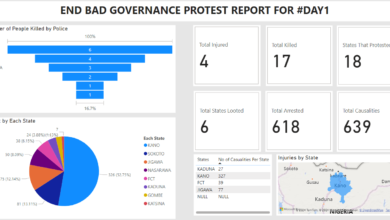Angola’s President Joao Lourenco Increases Minimum Wage for Public Servants

In a bold move to enhance the living standards of public sector employees, Angola’s President Joao Lourenço has announced a substantial increase in the minimum wage for civil servants.
This change reflects the government’s commitment to improving economic stability and boosting the welfare of its workforce.
Details of the Wage Increase
Presidential Decree and Implementation
- Decree Date: President Lourenço signed the decree on April 19, with the new salary structure set to take effect from June 1.
- Minimum Wage Adjustment: The minimum monthly net salary for all civil servants has been raised to 100,000 kwanzas ($120), marking a significant increase from the previous 70,000 kwanzas ($85).
Specific Adjustments Across Sectors
- General Civil Servants: Previously earning a net salary of 69,000 kwanzas ($82), now will receive 100,000 kwanzas ($120).
- Senior Military Personnel and Medical Staff: Salaries have been elevated to a net of 1.8 million kwanzas ($2,150).
- Educational Sector: University professors, previously earning 669,000 kwanzas ($800) per month, will now see their salaries rise to at least 1 million kwanzas ($1,195).
- Teachers and Researchers: This group will also benefit from the revised salary scheme, receiving substantial pay raises.
Tax Reforms Complementing Salary Increases
Income Tax Adjustments
- New Exemption Threshold: In a related financial reform, the government declared that individuals earning below 100,000 kwanzas ($120) monthly would be exempt from income tax, a policy that took effect in January 2024.
- Previous Exemption Cap: The earlier cap for tax exemption was at 70,000 kwanzas ($85) per month.
- Income Tax Rates: Formal employees are subject to income tax rates ranging from 10% to 25%, while self-employed individuals pay a flat rate of 15%.
Also Read: Luanda Angola’ the Most Expensive City in Africa
Economic Context and Implications
A Response to Economic Challenges
- Oil-Dependent Economy: As one of Africa’s leading oil producers, Angola’s economy has faced volatility influenced by global oil prices. The wage increase is part of broader efforts to stabilize the economy and reduce dependency on oil revenues.
- Impact on Public Sector Employment: Angola has approximately 812,000 civil servants. This wage increase is poised to inject more liquidity into the economy and potentially boost consumer spending.
Potential Challenges and Opportunities
- Fiscal Sustainability: Critics and economists are watching closely to assess the impact of these increases on the national budget and fiscal stability.
- Enhanced Public Services: With better remuneration, the government anticipates improved motivation among public servants, potentially leading to higher productivity and better public services.
Public Reaction and Future Outlook
Community and Workforce Responses
- Positive Reception: The announcement has been met with widespread approval from civil servants, who have long advocated for better pay to cope with the cost of living.
- Critiques and Concerns: Some commentators express concerns about the long-term implications of these increases on Angola’s fiscal health.
Strategic Goals
- Economic Diversification: These reforms are part of Angola’s broader strategy to diversify its economy and reduce the over-reliance on the oil sector.
- Social Stability: By improving the financial stability of its workforce, the government aims to foster a more content and productive society.
Conclusion: A New Chapter for Angola’s Workforce
President João Lourenço’s decision to increase the minimum wage for civil servants marks a transformative step in Angola’s socio-economic landscape.
This move not only aims to enhance the living standards of thousands of workers but also reflects a strategic approach to economic and social reform.
As Angola continues on this path of progressive policy changes, the impact of these decisions will likely resonate across various sectors of society, contributing to overall national growth and stability.




